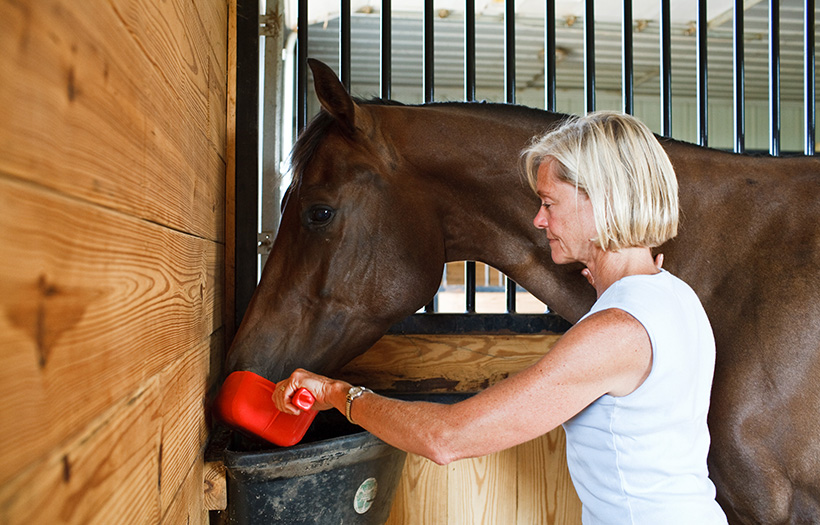Feeding the Hard-Keeper Horse that has Ulcers

My horse is a hard keeper, and is also prone to ulcers. What should I feed?
Horses vary a great deal in what level of nutrition is required to maintain desired body condition and muscle mass. Horses have not been selected or bred based on feed efficiency, feed conversion or rate of gain, so there a lot of variation between horses.
A horse that is a hard keeper may require more Calories per day to maintain body condition than an easy keeper doing the same work. One way to help this horse will be to feed high quality forage that has a high Relative Feed Value (RFV) that is associated with higher Digestible Energy (DE) per pound. A good choice might be an alfalfa or alfalfa grass mix that was cut at early maturity so it has fine stems and lots of leaves. This hay could be fed free choice or at least 3-4 times per day at a rate of about 2% or above BW/head/day.
The hard keeper may also benefit from a commercial feed that is high fat (8-9 % or higher) and controlled starch and sugar (so it can be fed at higher levels) with amino acid fortification (lysine, methionine and threonine) to help maintain muscle mass. This feed can be fed a minimum of 2 times per day, and preferably 3-4 times per day so that the quantity being fed can be increased while controlling risk of starch overload through smaller individual meals. The quantity can be increased with the desired forage to produce weight gain, and then adjusted to maintain desired weight.
A high fat supplement that is 20+% fat can also be used as a top dress.
This feeding plan may also be useful in reducing the risk of having ulcers redevelop after a horse has been treated with appropriate medication. Free choice forage or pasture is a good option so the horse’s stomach is not empty for long periods of time. Alfalfa contains levels of calcium and magnesium that may be useful in buffering acid in the stomach. High fat, controlled starch feeds fed in small meals at frequent intervals may also be useful in reducing the risk of re-occurrence. A feed that contains specific metal amino acid complex trace minerals may also help improve gut health and digestive tract tissue integrity in the stomach.
